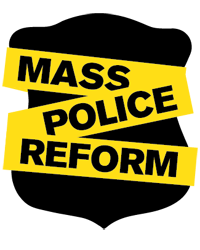Massachusetts is one of only six states that does not require special licenses for police officers, according to the ACLU. State Rep. Russell Holmes, D — Boston, is trying to change that.
Since 2016, Holmes and Rep. David Vieira, R — Falmouth, have been working to pass a bill that would establish a special commission to provide recommendations for implementing a police officer standard training system. POST systems are used by most states to create the standards for hiring, training, and licensing of police officers.
Holmes told Jim Braude on WGBH News’ Greater Boston Tuesday that a POST system, and subsequent licensing requirements for police, would make it easier to decertify them and remove officers from active duty if something were to go wrong. Holmes said that police “are not accustomed to that type oversight, but it is certainly is an oversight I think that the rest of society is accustomed to.”
Cambridge Police Commissioner Branville Bard, who joined Holmes on Greater Boston, said he believes that the municipal certifications police officers in the state are required to have already provide similar oversight, but he does see the value in the bill and creating a POST system in Massachusetts.
“I am in favor of anything that puts checks and raises the cost of bad behavior,” he said.
Holmes, however, said that these municipal certifications do not ensure that officers have all had the same standardized training, which would be necessary for licensing purposes.
“You should have the same requirements if you are going to have a badge and we should be able to understand what training you have had in the past,” Holmes said.
Bard agreed with Holmes in the need for universal training.
The call for police reform has perhaps been at an all-time since the death of George Floyd last month and the subsequent protests across the country against police brutality and racial injustice.
“They are right to be angry,” said Bard, who is black. “They see historical injustices followed up by continued injustices and what seems to be an endless stream of injustices committed by law enforcement against members of the minority community.”
